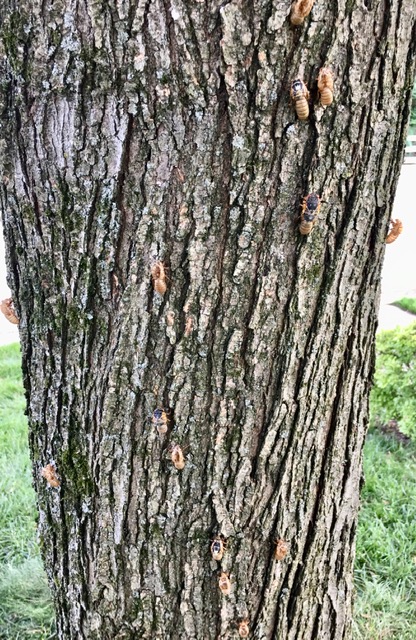Yesterday I described the return of Cicada Coop , a life-long credit union fan after 17 years of living “off the grid” underground, so to speak.
Before entering hibernation, Cicada Coop had marveled at the industry-regulatory mutual efforts. In the 2003 NCUA Annual Report he kept, examples included lowering costs of regulation, joint collaboration in planning, transparency in all aspects of expenses including the Overhead Transfer Rate, OTR as a just a few of many examples.
Two Videos Showing NCUA’s New Stance Towards Credit Unions
The cicada and I went inside. I shared two videos of the NCUA chair testifying before Congress in July 2015 to dramatize the change from the cicada’s last appearance. The first excerpt is the agency’s view of its obligation for transparency with credit unions. The Chair explains that an external OTR study by Price Waterhouse recommending more transparency and industry input was redacted by the General Counsel as a “trade secret.” The chair also says putting the agency’s budget on the web “would not be effective” in improving communications with credit unions.
This is the full, live five-minute exchange:
(https://www.youtube.com/watch?v=CiPgW1mgDw8)
The second five-minute video includes several surprising assertions about credit unions and the agency’s relationship to them. Two comments by the chair are “credit unions are not interested in NCUA’s budget” and “credit unions do not represent their members.”
Perhaps the greatest contrast to the environment in 2004 was the statement by the chair that “it is not good government to have the people who are regulated trying to participate in the budget making process of the regulator.”
The Congressman described her position on NCUA’s budget process as, “Self serving, crazy talk.”
This is the exchange: (https://www.youtube.com/watch?v=z-__EgfM2vA)
Coop Cicada’s Questions
My friend’s question is what happened during these 17 years we cicadas are underground? Why the change in NCUA’s view of its responsibility to credit unions?
My quick answer was leadership, especially by the NCUA board. Once a leader decides to limit transparency and accountability and assert independence from the industry, the culture becomes part of the bureaucracy. Individuals become comfortable away from public scrutiny and resist change.
Cicada pondered whether this breakdown in mutual efforts could be overcome. My reply was good leadership willing to disrupt accepted ways could start the process. Also knowing the past, just as he read from the Report, helps everyone understand what is lacking in present circumstances.
Ultimately however change must be collaborative. Because discerning what is best is always hard. The effort must be done together. Like the strategic planning process he described in 2004.
“So do you think credit unions will be here 17 years from now, when my family and friends return?” Cicada asked.
That depends. Coops will be here because they embody some of the best instincts of the human spirit. As for NCUA, that is an open question.
With that, Coop Cicada went up the tree to create the next generation of his species. A process loud and exuberant. Maybe there is a lesson from nature for those without a 17-year horizon.

